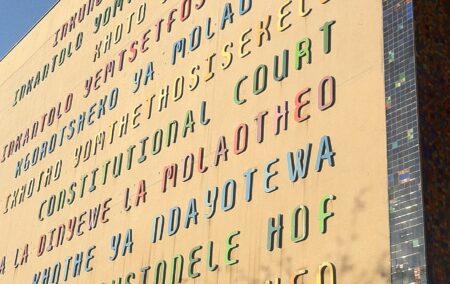The Constitutional Court has ruled that sections of the Maintenance of Surviving Spouses Act and the Intestate Succession Act are unconstitutional, thereby granting inheritance rights to life partners.
The ruling comes after Jane Bwanya sought leave to appeal directly to the ConCourt following the partial dismissal of her case by the Cape High Court in which she challenged the constitutional validity of existing inheritance law.
Bwanya met and entered into a romantic relationship with Anthony Ruch in 2014. Ruch died in 2016 and his will, which had not been updated, bequeathed his estate to his mother who passed away in 2013.
Bwanya approached the Cape High Court after being prohibited from inheriting anything from her late partner’s estate even though the two were ‘involved in a relationship that comprised most, if not all, characteristics of marriage’. Inheritance was prohibited because Bwanya did not satisfy the legal definitions of ‘survivor’ or ‘spouse’.
She was eventually awarded a settlement of R3m by the executor of her late partner’s will. However, she later approached the Cape High Court seeking R10m – the full value of Ruch’s estate – arguing that the Acts governing inheritance and maintenance contained sections that could be deemed unconstitutional.
The court ruled in Bwanya’s favour and ordered that the definition of ‘survivor’, in both the Maintenance of Surviving Spouses Act and Intestate Succession Act, be read as including ‘the surviving partner of a permanent life partnership terminated by the death of one partner in which the partners undertook reciprocal duties of support and in circumstances where the surviving partner has not received an equitable share in the deceased partner’s estate.’
In addition, the court ordered the definitions of both ‘spouse’ and ‘marriage’, for the purposes of the Acts, to include, ‘a person in a permanent life partnership in which the partners undertook reciprocal duties of support’.
Chief Justice Mogoeng was one of two dissenters (the other being Justice Jafta). The crux of his dissent centred on the fact that life partnerships are legally unregulated and their existence is hard to ascertain. He posed the question: ‘when do heterosexual couples enter into a permanent life partnership or how does it come into being? What are the predictable requirements and commitments, entitlements or obligations that flow from it?’
On the back of this, he appealed to his colleagues to realise ‘just how virtually murky and truly uncharted the permanent life partnership waters are for our courts to find a sailable way through them’.
Despite this and other objections, the Court ruled in the applicant’s favour and has given Parliament 18 months to ‘cure the constitutional defects identified in this judgment’.
The decision will impact the lives of many South Africans in light of census data from 2016 revealing that approximately 3.2 million South Africans cohabit outside of marriage and that this number is increasing steadily.

